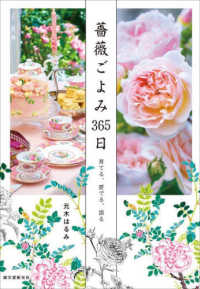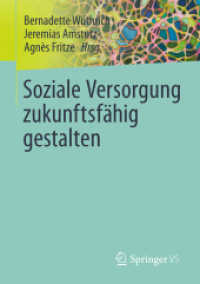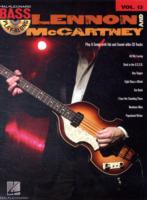- ホーム
- > 洋書
- > 英文書
- > History / World
Full Description
This is a major reassessment of the communications revolution of the seventeenth century. Using a wealth of archival evidence and the considerable output of the press, Jason Peacey demonstrates how new media - from ballads to pamphlets and newspapers - transformed the English public's ability to understand and participate in national political life. He analyses how contemporaries responded to political events as consumers of print; explores what they were able to learn about national politics; and examines how they developed the ability to appropriate a variety of print genres in order to participate in novel ways. Amid structural change and conjunctural upheaval, he argues that there occurred a dramatic re-shaping of the political nation, as citizens from all walks of life developed new habits and practices for engaging in daily political life, and for protecting and advancing their interests. This ultimately involved experience-led attempts to rethink the nature of representation and accountability.
Contents
Introduction; Part I. Consuming Print: Introduction; 1. The ownership of cheap print; 2. The accessibility of print; 3. Readers, reception and the authority of print; Part II. Following Parliament: Introduction; 4. Analysing parliament and its problems; 5. Access to parliament; 6. Monitoring personalities and performance; Part III. Taking Part: Introduction; 7. Authors, printing and participation; 8. Print and petitioning; 9. Print and lobbying; 10. Printing, mass mobilisation and protesting; 11. Holding representatives to account; Conclusion.








